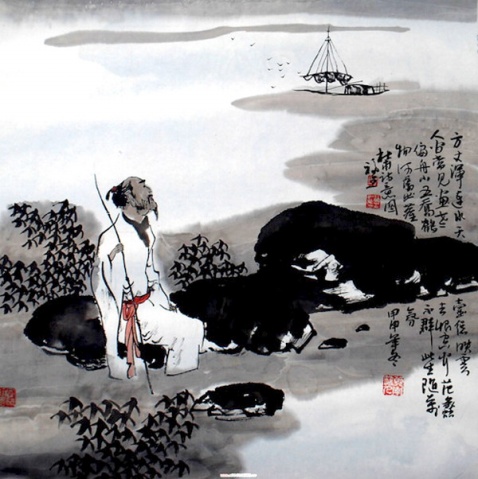Reach the end of emptiness, abide in the end of stillness. Things manifest, i see coming and going.
-> Emptiness here refers to reality beyond form. Stillness here refers to reality beyond mind. When one realizes this reality, one sees things coming and going, fully aware, but not affected by them.
Despite of diversity, things all eventually return to their root. Returning to the root is stillness, is called answering to destiny.
-> Despite of diversity of forms, all things are manifested in cycles of birth-growth-wither-death. E.g animal, plants, species, planets, galaxy, etc. Root here refers to the center that is beyond the cycle of birth-growth-wither-death. Return to the root, or answering to destiny, means realizing and abiding in one’s center, which is beyond diversity and transitory of forms.
Answering to destiny is normal, knowing this normalness is wisdom. Not knowing this normalness, is recklessly doing dangerous deeds.
-> Abiding in the center is normal. Knowing, realizing, recognizing the center as normal is wisdom (ordinary people would properly think otherwise). Where in fact, according to Laozi, not knowing this normalness and act selfishly, randomly, aimlessly, and ignorantly is reckless.
Knowing brings compassion, compassion brings impartiality, impartiality brings nobility, nobility becomes heavenly, heavenly is a quality of Dao, Dao is timeless, beyond physicality and cannot be endangered.
-> When we abide in the center and see all things come and go via this center, we can see equality of all (that we all arise from the same source), and therefore are in position to accept and be compassionate. When we have respect, compassion, and value all equally (including one’s “self”), we can then live without personal bias and arrive impartiality. When we live impartially ours actions and intentions are noble. As the purification continues, ones life becomes heavenly, which is a quality of Dao (see Ch5: Impartiality and heavenly of the Dao). This Dao is everlasting, and lasts even without form. Therefore, when one realizes, one is freed from the attachments to, identifications with, and limitations of forms.
* * *
Chapter 16 Discussion:
The first part of this chapter describes the difference between enlightened being vs. normal people. Enlightenment is a state where life is lived in alignment with the everlasting center, while ordinary people are lost in the diversity of forms and cycles of life and death. Enlightenment means one knows where one is from, ordinary people do not know its source and therefore are threatened by the changes and temporariness of forms.
The second part of this chapter describes the process of Dao cultivation: study and know about the center, which provides basis for true compassion, which when cultivated and expanded leads to impartiality, nobility, heavenly, and finally to the realization of the Dao. How to proceed? We learn about the center, cultivate respect and compassion, let go of personal bias and attachments, and follow the guidance of and the flow of the universe, instead of to one’s self.
.DDJ Chapter 16 bilingual text: http://www.lisiming.net/philosophy/chinese-philosophy/daoist/daoist-philosophy/dao-de-jing-core-33-chapters/ddj11-3/


Leave a Reply